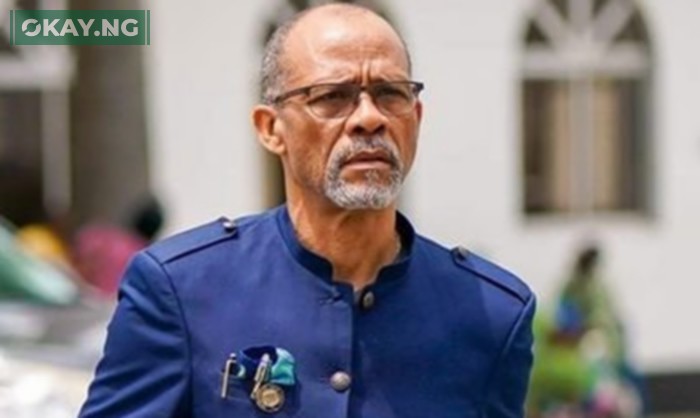In a significant stride towards public health advancement, the Lagos State government has announced a remarkable reduction in malaria prevalence, dropping to an unprecedented 1.3%. This places the bustling metropolis firmly on the path to achieving malaria pre-elimination status, a key benchmark set by the World Health Organization (WHO).
The groundbreaking announcement was made by the Lagos State Commissioner for Health, Prof. Akin Abayomi, during an engaging awareness walk and strategic stakeholders’ engagement event held on Friday in commemoration of World Malaria Day 2025. Themed “Malaria Ends With Us: Reinvest, Reimagine, Reignite,” the event underscored the collaborative spirit driving this progress, with the Lagos State Ministry of Health partnering with the Society for Family Health (SFH) and Goodknight Nigeria.
“Lagos is now at 1.3% malaria prevalence and fast approaching pre-elimination as defined by the WHO,” declared a confident Prof. Abayomi. He highlighted the dramatic progress achieved over the past 15 years, recalling that “Lagos has transitioned from 15% malaria prevalence in 2010 to just 3% in 2023. Now, as of March-April 2025, the most recent data shows that we are at an encouraging 1.3% prevalence rate.” This remarkable decline, he emphasized, is a direct result of “deliberate, data-driven interventions” implemented by the state.
Drawing attention to the vector responsible for the disease, Prof. Abayomi described malaria as a vector-borne illness transmitted by the female Anopheles mosquito. He stressed the critical importance of accurate diagnosis and the timely use of Artemisinin-based Combination Therapy (ACT) for all confirmed cases. “Early detection and correct treatment not only protect the infected person but also prevent further transmission of the parasite to others,” he explained, urging citizens to trust malaria test results and avoid the dangers of over-treatment.
Despite the encouraging downward trend in malaria cases, the Commissioner raised concerns about the persistent misuse of anti-malarial drugs. “Data shows that even with only 3% testing positive, over 50% of patients with fever are still being treated for malaria. This must change,” Prof. Abayomi asserted, calling for intensified public enlightenment campaigns and responsible prescribing practices among healthcare providers.
The health commissioner also underscored the continued focus on vulnerable populations, particularly pregnant women and children under five, whose “immune systems are either underdeveloped or compromised.” He emphasized the necessity of ensuring that “every case of fever is properly tested, and every confirmed case is properly treated, especially in these groups.”
Prof. Abayomi lauded the strategic partnerships with key organizations such as the World Health Organization, the Federal Ministry of Health, and the Pharmacy Council of Nigeria, under the umbrella of the IMPACT Project, as being instrumental in Lagos State’s determined push towards malaria elimination.
Read Also: Lagos Grapples with Healthcare Worker Shortage Amidst Infrastructure Push
Highlighting the state’s enduring commitment, Prof. Abayomi acknowledged Lagos State’s consistent adherence to the National Malaria Strategic Plan over the past 15 years. He also recognized the contributions of previous Health Commissioners and the unwavering dedication of public health workers in building this “trajectory of success…through consistent testing, proper treatment, and robust data tracking.”
The Commissioner extended particular praise to the “vision and political will” of Governor Babajide Sanwo-Olu, who has officially mandated the Ministry of Health to spearhead Lagos State’s journey towards malaria pre-elimination and, ultimately, complete eradication. He affirmed that the Governor’s strong endorsement of this agenda is “backed by data, resources, and strong political will,” positioning Lagos as a pacesetter in Nigeria and across the continent in forging a “sustainable, evidence-driven pathway to a malaria-free future through strong partnerships and sound policies.”
Echoing the urgency of the moment, the Assistant Public Health Officer for the World Health Organization (WHO), Aisha Abdulkareem, called for a “renewed global commitment to malaria control efforts.” While acknowledging the significant global progress in averting an estimated 2.2 billion malaria cases and 12.7 million deaths over the past two decades, she cautioned that “progress has stalled due to challenges such as climate change, conflict, and economic instability.”
Abdulkareem passionately urged stakeholders to “reinvest in proven interventions, rethink current strategies, and reignite both global and local efforts,” emphasizing that “ending malaria is not just a health objective but a critical investment in a safer and more prosperous future for all.”
This landmark achievement in Lagos State serves as a beacon of hope and a testament to the power of sustained commitment, data-driven strategies, and collaborative partnerships in the fight against malaria. As the state edges closer to pre-elimination, the focus remains on consolidating these gains and ensuring a malaria-free future for all its residents.













